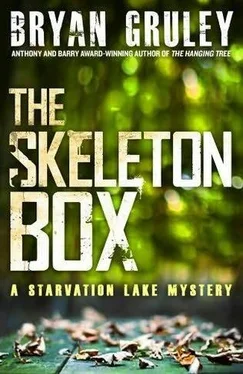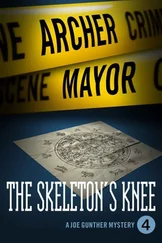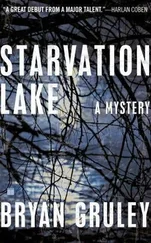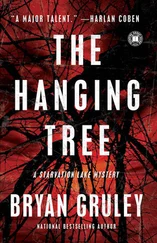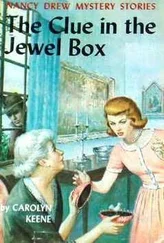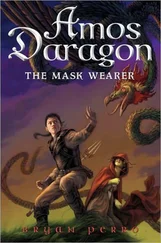Bryan Gruley - The Skeleton Box
Здесь есть возможность читать онлайн «Bryan Gruley - The Skeleton Box» весь текст электронной книги совершенно бесплатно (целиком полную версию без сокращений). В некоторых случаях можно слушать аудио, скачать через торрент в формате fb2 и присутствует краткое содержание. Жанр: Криминальный детектив, на английском языке. Описание произведения, (предисловие) а так же отзывы посетителей доступны на портале библиотеки ЛибКат.
- Название:The Skeleton Box
- Автор:
- Жанр:
- Год:неизвестен
- ISBN:нет данных
- Рейтинг книги:5 / 5. Голосов: 1
-
Избранное:Добавить в избранное
- Отзывы:
-
Ваша оценка:
- 100
- 1
- 2
- 3
- 4
- 5
The Skeleton Box: краткое содержание, описание и аннотация
Предлагаем к чтению аннотацию, описание, краткое содержание или предисловие (зависит от того, что написал сам автор книги «The Skeleton Box»). Если вы не нашли необходимую информацию о книге — напишите в комментариях, мы постараемся отыскать её.
The Skeleton Box — читать онлайн бесплатно полную книгу (весь текст) целиком
Ниже представлен текст книги, разбитый по страницам. Система сохранения места последней прочитанной страницы, позволяет с удобством читать онлайн бесплатно книгу «The Skeleton Box», без необходимости каждый раз заново искать на чём Вы остановились. Поставьте закладку, и сможете в любой момент перейти на страницу, на которой закончили чтение.
Интервал:
Закладка:
The burned oak stood at the apex of a triangle with the other oak and the birch marking the ends of its legs. A scalene triangle, I thought, remembering my mother saying it to me over my ninth-grade geometry textbook at the dining room table. She was better at math than she was at spelling. The scalene was outlined by dotted lines. A fourth dotted line bisected it from the burned oak down and off the page’s ragged bottom edge. To where, or to what, I had no idea.
A treasure map? I thought. It made me recall what I had said to Tatch when I’d visited his camp and seen all the people toiling on the hill: Digging for gold? Now I asked myself: Could this crude map my mother had drawn years or even decades ago show Breck and his blindly faithful diggers how to find whatever it was they were tearing up the earth for? If so, it would have to have something to do with Nilus, wouldn’t it, or why else would Mom have put it in an envelope labeled as it was?
I slipped the page back into the envelope and pulled out the other paper. It was, as I’d thought, newsprint, a yellowed, one-column clip that had been scissored out of a newspaper, then folded over once. I’d seen it on the microfilm machine at the clerk’s office: “Accused Killer Murdered in Pine County Jail.” I quickly reread it, noting again the connection between the accused, Joseph Wayland, and his grandson, Breck.
I felt someone looking at me and lifted my eyes to see the orange hunting cap floating in the dark before my truck. The old man grinned and looked back at the restrooms with a shrug, as if to say, “What do women do in there anyway?” I smiled again, nervously I thought, and kept a sidelong gaze on him until his Chrysler pulled away.
Mom obviously didn’t want the police to know about what I held in my hands, or else she wouldn’t have rushed me out the back of Dad’s garage. I imagined her now, sitting in a jail cell, reading a book or a magazine. I pictured Darlene stopping by to see her. I felt relieved. I wondered if the police would release Mom before I returned to Starvation, and hoped they would not.
I put everything back in the envelope, dropped it into the lockbox, locked it, and stuffed it under the rubbish on the floor. The fluorescent glow of the restroom lobby grew dim in my rearview mirrors as I pulled back onto I-75.
SEVENTEEN
I turned my cell phone on after crossing the bridge at Zilwaukee, a bit more than a hundred miles north of Detroit. There were two new messages.
Attorney Peter Shipman said he’d been retained by my mother. Darlene, he said, had called him, God bless her. “Bea’s fine,” he said. “The cops aren’t saying much, and I told her to stay mum for now. No charges yet, but they’re holding her for questioning. Between us, I think they think it’s for her own safety. She has her own cell and they’re treating her with kid gloves. She sends her love.”
The young woman on the other message said simply, “Call me when you hit twenty-three.”
I dialed Joanie McCarthy when I exited onto U.S. 23 south toward Detroit.
“Thirsty?” she answered.
“Where are you?”
“The newsroom. The desk called me in to chase some stupid Freep story we wrote a week ago. Then they decided there was no space for it.”
My old newsroom: the wooden desks like steamer trunks, the wires snaking up the ancient pillars, the rattle of keyboards ringing off the tile floors, the smells of bad coffee and old leather and newsprint.
“Sorry,” I said. “Just pop it on the Internet.”
“Might as well put it in a bottle and throw it off the banks of the Detroit River. You still shoot pool?”
“Not for a while, but it’s kind of late, isn’t it?”
“Not upstairs at Aggie’s. You know it?”
I looked at my watch. After midnight. I had thought I would get a motel and meet Joanie in the morning. But she had stayed up, so I guess I had to stay up.
“Greektown, right? Monroe?”
“Off Beaubien. An hour?”
“Sure. You got some stuff on Breck?”
I heard what I thought was her taking her feet off of a desk, plopping them on the floor. “Altar boy,” she said.
“How so?”
“See you at Aggie’s. Bring your A game.”
I had to hop between three puddles of vomit glistening in the streetlights on the sidewalk outside Aggeliki’s Greek.
A man wearing a grease-spattered apron and folded white paper hat came out of Aggie’s with a bucket and mop, shaking his head. He looked at me and I said, “Not me, man.” He said something in Greek that I didn’t understand. His look said fuck off.
I opened the glass door to the vestibule at Aggie’s. The restaurant lay beyond another glass door to my right, aglow in white fluorescence, clattering with plates and forks and the babble of the boozed and drowsy. The aroma of garlic filled my nose, and my belly told me pastitsio, please, and dolmades, with a cup of creamy lemon soup. But I turned to my left and pushed through a wooden door that hid a gloomy stairway reeking of cigarettes. At the top of the stairs, I heard the faint din of the Clash on a speaker that must have had a torn woofer, then the dull crack of a rack of pool balls being broken, then the voice of a man saying, “Get in there, sweetness.”
I squinted through the haze, thicker even than at Enright’s. Behind the balls rolling to a stop on the table, Joanie McCarthy leaned against a paneled wall, a pool stick propped in one hand. Her face was obscured in the smoky radiance of the two bare lightbulbs hanging over the table, but I could tell it was her by the way her wide hips swung to one side over her crossed legs.
I caught her eye. She smiled. I was transported back to the Pilot newsroom, two years before, when she had sat where Whistler now sat, daring me to run the stories she wrote that she knew would upset the old fogies who would rather sit around Audrey’s bitching about how the politicians were pissing away their tax dollars than have to stomach reading about it in the Pilot. On the rare occasion back then when Joanie smiled without sarcasm, I don’t know exactly why, but I would feel better about myself, and about her.
Her smile across the pool table now did the same, for a heartbeat. Joanie turned to the guy who had broken the rack. “That’s all you got?”
“Loose rack,” said the guy.
“Loose? You love loose,” Joanie said, allowing herself a quick look at me, almost as if for approval. Now she came off the wall and leaned over the table, scanning the scattered balls. “One off the four,” she said. “Four might go, too.”
“The queen of slop,” the guy said.
His voice was oddly familiar.
Joanie grinned and bent and stroked the cue ball into the one ball. The one glanced off of the four and dropped cleanly into a corner pocket. The four edged toward a side pocket and hung on the lip. Joanie bounced sideways to her left, pointed her stick at the table again. “Two down there, and I’ll back up the cue and knock the four in this time,” she said.
“Sure you will,” the guy said.
The three of us seemed to be the only ones in the place. The floor was covered in shag carpet the color of zucchini and flecked with cigarette burns and stains I didn’t want to know the origin of. The walls were bare but for coats hung on nails and a single black-and-white photograph of a woman in an apron, Aggie herself, hugging the Stanley Cup.
The guy playing against Joanie plucked a cell phone off of his belt and punched the keys with a thumb while glaring at me. I looked away, wondering who the hell made phone calls at this time of night?
Joanie kept sinking balls. After each shot, she gave me a fleeting glance, gauging my expression. She knew she was not the Joanie McCarthy I had known, the baby-fat grad-school kid with the bush of flaming auburn hair and gigantic backpack who had spent an eventful year as my junior reporter at the Pilot. This Joanie shooting nine ball in an after-hours joint wasn’t quite slinky, but she had lost enough pounds to wear her Dearborn Music T-shirt knotted over her bare belly.
Читать дальшеИнтервал:
Закладка:
Похожие книги на «The Skeleton Box»
Представляем Вашему вниманию похожие книги на «The Skeleton Box» списком для выбора. Мы отобрали схожую по названию и смыслу литературу в надежде предоставить читателям больше вариантов отыскать новые, интересные, ещё непрочитанные произведения.
Обсуждение, отзывы о книге «The Skeleton Box» и просто собственные мнения читателей. Оставьте ваши комментарии, напишите, что Вы думаете о произведении, его смысле или главных героях. Укажите что конкретно понравилось, а что нет, и почему Вы так считаете.
